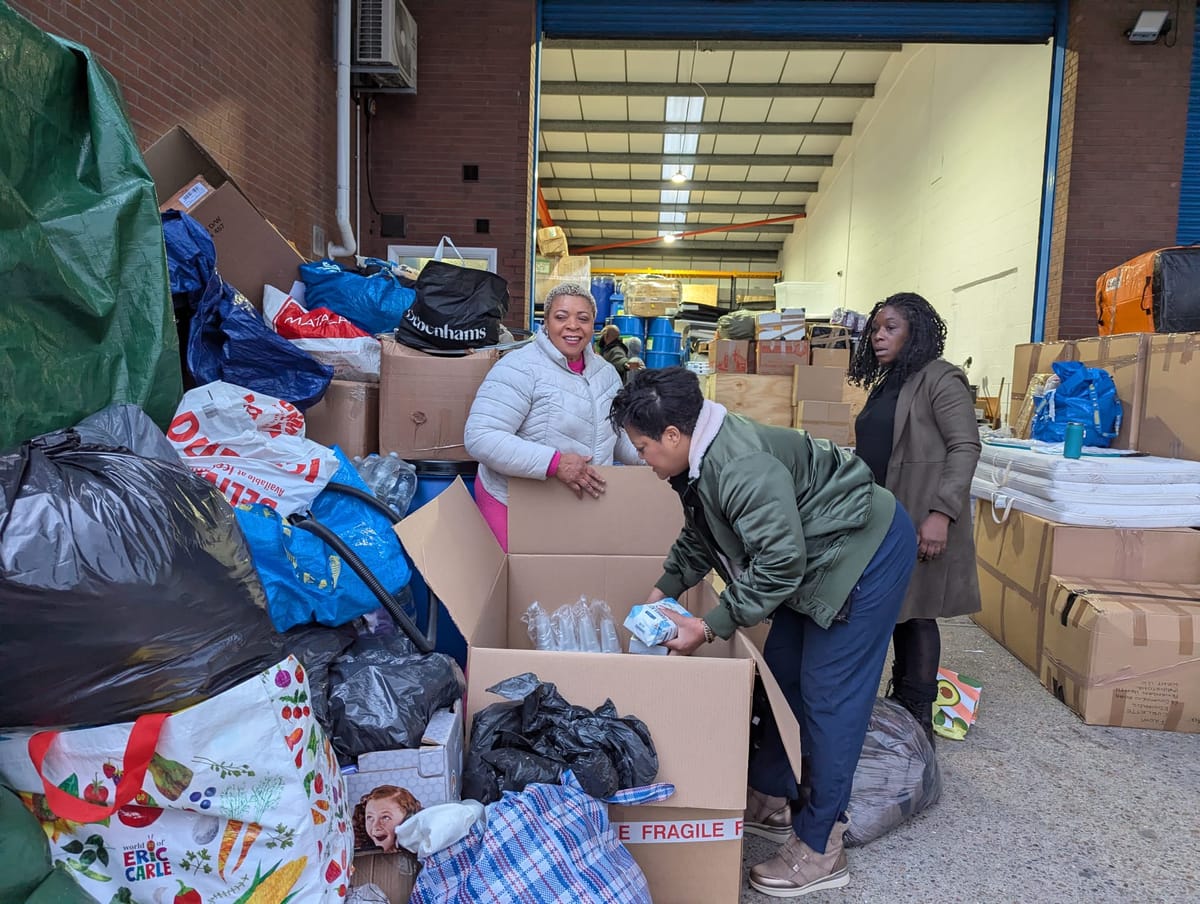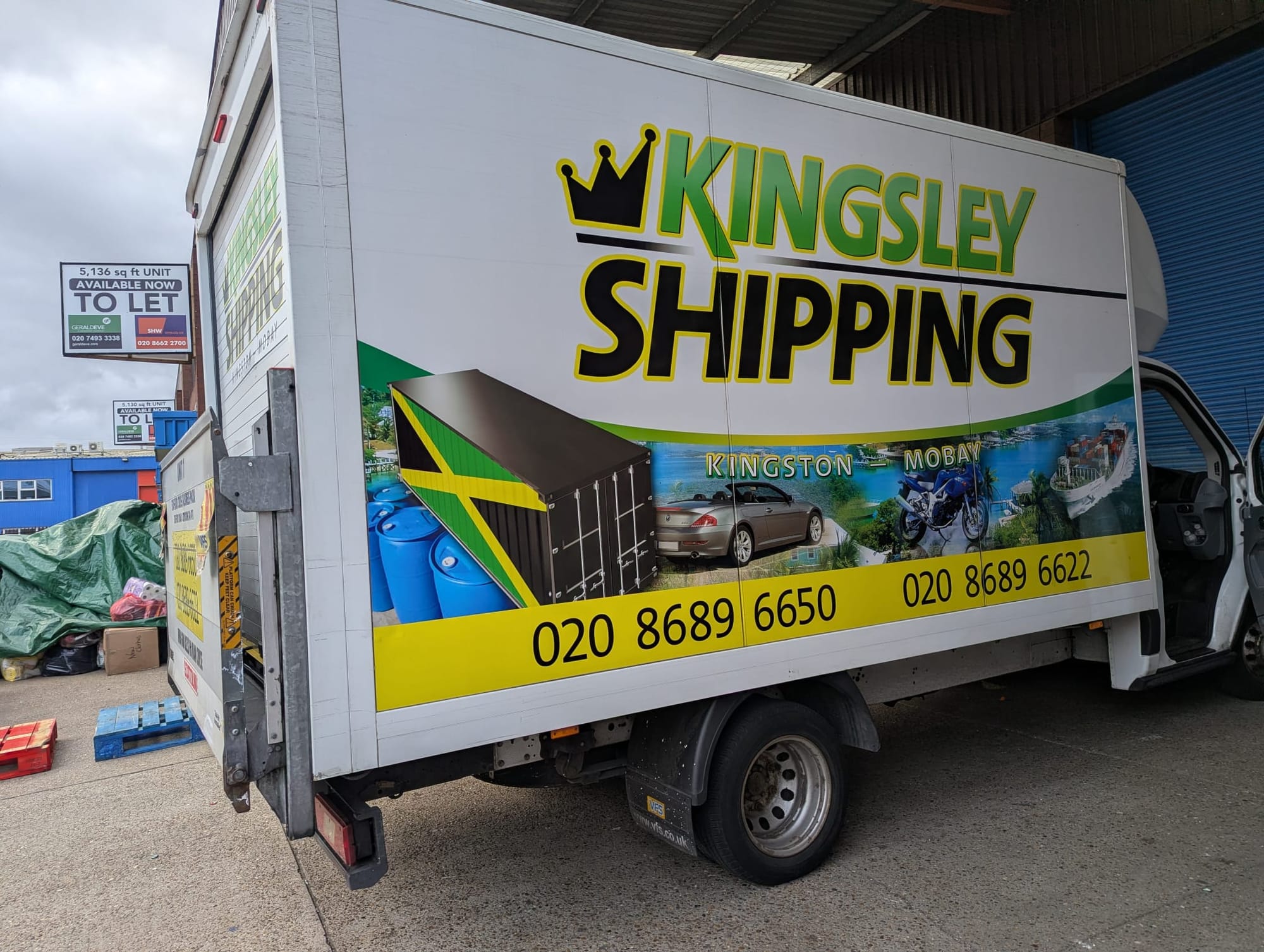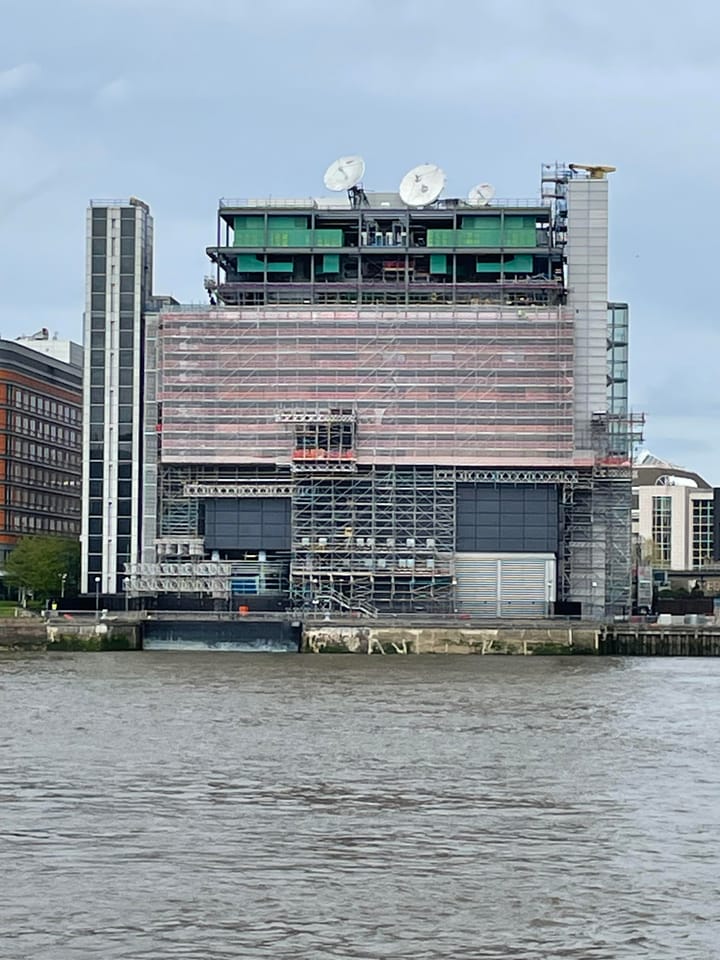Hurricane Melissa: relief donations pour in, amid warnings of 'dangerous new reality'
In Croydon, volunteers mobilised the relief effort for Jamaica, while a rapid weather attribution report showed the role of climate change in the catastrophic storms.

In late October, Hurricane Melissa crossed the Caribbean leaving a trail of destruction across Jamaica, Cuba, the Dominican Republic and Haiti.
It brought extreme winds, torrential rainfall and life-threatening storm surges to coastal areas of Jamaica and then Cuba, and went on to cause flash floods and landslides in Haiti.
It was the most powerful storm to hit Jamaica since records began, and 20 researchers from different countries collaborated on the World Weather Attribution (WWA) report which showed that climate change made the hurricane more likely, more intense and more destructive.
Jayaka Campbell, senior lecturer at the University of the West Indies, Jamaica said: "Hurricane Melissa's catastrophic landfall in Jamaica is not an anomaly, it is the canary in the coal mine.
"When a storm can explosively intensify from 70 to 185 mph in less than three days over ocean waters that are ~1.5°C warmer than normal, we are witnessing the dangerous new reality of our warming world.”

Londoners with family and friends in Jamaica began organising as soon as the news broke.
Kingsley Morrison who runs Kingsley Shipping in Purley Way, Croydon donated a portable container.
"I'm shipping this container to Jamaica for free," he said, "and the government will clear it and do the distribution."
Drivers were dropping off relief supplies, while volunteers were sorting it. "We've been overwhelmed with stuff," Morrison said.
He had received donations of baby wipes, nappies, clothes, food items, toiletries, tools to rebuild houses and nails, and volunteers were packing them in the storeroom.
"I'm not looking for money from anybody, I'm just doing my part as a donation," he said.
Michelle Mitchell said the relief effort would go to the worst hit areas including Black River, Santa Cruz, Santa Elizabeth, Hanover and Montego Bay.
"A lot of people are still flooded out, especially in Mandeville, where my dad is from," Mitchell said.
"My friend Marcia has had to leave her house in Santa Cruz, she was flooded out. And in Black River, her dad's roof was blown away in the hurricane. "
She added that many people are still displaced by flooding.
Annette Gavin runs a charity called the Gavin Foundation and PD Thanxx Foundation, which runs a community relief project in Manchester, Jamaica.
"We're here at Kingsley Shipping just to give back," she said, "because this could have happened to any one of us.
"Some of my family lost their roofs in Trelawney .. My cousin lost his business, he runs a construction business ..
"So all his tools, his equipment .. completely damaged. The roof taken off."
Gavin's husband has retired and moved back to Jamaica, where he runs a farm at St Ann Parish.
"Because we had so much rain, the water washed out all the ginger, the carrots, everything .. the wind blowed down all the trees.
"We had a thousand planting, 700 bananas, and they're all gone."

"No words for it"
Mika was in Kingston when the hurricane hit, so she was not in its direct path.
She said: " We prepared the best way we could with the time we knew about it, we got ourselves ready and tried our hardest to keep safe. Followed the protocols."
She witnessed the aftermath in areas in the centre and west of the island, and told Salamander: "There's no words for it. Just to be alive is the greatest thing."
Mika returned to London on a relief flight last Wednesday.
Sign-up for our free weekly newsletter - Salamander News in your inbox
"Dangerous reality of human-induced climate change"
The WWA project, based at University College London, published its rapid attribution study on 6 November, confirming that climate change made hurricane Melissa more likely, more intense and more destructive.
20 scientists from countries including Jamaica, Cuba, the Dominican Republic, US, UK, Sweden and the Netherlands used multiple approaches to investigate the influence of climate change on the hurricane.
Campbell said: “Melissa destroyed livelihoods, infrastructure, and lives in a matter of hours, but the conditions that created this monster storm have been building for decades. We have the science, we understand the risks, and we know the solutions.
"Every fraction of a degree of warming we prevent, every investment in resilient infrastructure, every dollar committed to adaptation in vulnerable regions is the difference between survival and catastrophe for millions of people."
Arnoldo Bezanilla, Researcher at the Centre for Atmospheric Physics, Cuba, said: "Cuba is facing hurricanes that are growing stronger as a result of the burning of fossil fuels ..
"As part of the Cuba response, more than 735 thousand people were safely evacuated before the hurricane, but agricultural areas, roads, houses, and other critical infrastructure suffered severe damage. It will take years to fully recover ..
Salamander News is a partner of global climate journalism collaboration Covering Climate Now. Become a supporter or leave a tip.
COP30 in Belém - what is at stake
“Despite efforts to strengthen adaptation and resilience, small island nations continue to face escalating losses from climate change. With the climate negotiations happening in Belém this month, Hurricane Melissa is a reminder of what is at stake.
"This is a critical moment for countries to act, ensuring that climate finance reaches those most exposed to climate impacts, while committing to a real transition away from fossil fuels.”
Friederike Otto, another author of the study, warned: "What we see with Hurricane Melissa and other recent monster storms is that they are becoming so intense that they will soon push millions of people beyond the limits of adaptation,”
“Unless we stop burning coal, oil and gas, we will see more and more countries reaching these limits."
If you wish to donate or volunteer, please contact Croyden BME Jamaica appeal or support the Jamaican government relief appeal.
Please don't drop off more supplies at Kingsley Shipping, Kingsley's container was filled and shipped on 10 November.



